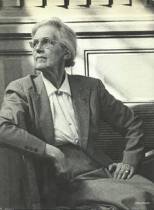 Nadia Boulanger was born in Paris, in 1887. Her emotional life was largely centered around her love for her sister, Lili Boulanger, who was six years younger, and who’s care Nadia had been entrusted with by their father. Lili was one of Nadia's first composition students, and it was largely under her guidance that Lili became the first woman ever to win the Prix de Rome, in 1913.
Nadia Boulanger entered the Paris Conservatoire at the age of ten. It was here that she studied organ with Alexandre Guilmant and Louis Vierne. She also studied composition with Gabriel Faure and Charles-Marie Widor and accompaniment with Paul Vidal. After winning almost every prize available at the conservatory (including organ, accompaniment, and fugue), she won the Deuxieme Grand Prix de Rome in 1908, which was a long-term goal of hers. She had tried two times before this, making it to the final round, but not placing. Her composition for the 1908 Grand Prix caused quite a scandal. Instead of the required vocal fugue asked for by the judges, Boulanger composed a string quartet. While some of the judges, including Camile Saint- Saens, objected, Boulanger was awarded the second place prize. Usually, the runner-up would receive the grand prize the following year, but Boulanger received no such honor. She never competed in the Prix de Rome again.
Nadia and Lili Boulanger had an interesting relationship. While she loved her sister unconditionally, Nadia always felt overshadowed by her sister’s amazing composition abilities. She once said "If there is anything of which I am very sure, it is that my music is useless.” Ten years passed between when Nadia Boulanger entered the Paris Conservatoire and when she placed second in the Grand Prix. Lili only spent one year in the conservatory before winning the first place prize with an overwhelming landslide vote. The death of their father in 1900 had been very instrumental in Lili’s turn towards composing, and yet, after she died in 1918, Nadia Boulanger never composed again. Lili had asked her to complete her unfinished works, but Nadia did not feel her composing abilities were on par with her sister’s and felt she could not do the compositions justice.
Boulanger’s compositional output includes a large number of vocal compositions (including over 30 songs), a number of pieces of chamber music, and a rhapsody for piano and orchestra. The rhapsody, written for Raoul Pugno, with whom she worked for 10 years, underwent so many revisions by Boulanger herself, stemming from her lack of self-confidence and her extreme self-criticism, that it is virtually unplayable now. Together, Boulanger and Pugno completed a song cycle, La heures claires, and an opera, La ville morte. The opera was scheduled to come to the stage in 1914. However, due to Pugno’s death that same year and the beginning of World War I, La ville morte was shelved and was never performed. The entire vocal score and the orchestration of Acts I and III still survive though. Boulanger was heavily influenced by Claude Debussy and her music was often very chromatic, although always based in tonality, as she was highly suspicious of atonal music. Despite this, she was a huge fan of Stravinsky, and conducted the premiere of his concerto Dumbarton Oaks in 1938 in Washington, D.C.
Boulanger, who liked to be known as 'Mademoiselle', made her conducting debut in 1912. She was the first woman to conduct several major symphony orchestras, including the New York Philharmonic, the Boston Symphony Orchestra, the Philadelphia Orchestra, and in England the Halle Orchestra of Manchester and the BBC Symphony Orchestra. However, she did not put much stock in this as part of reputation.
Her first teaching position was at the Conservatoire Femina-Musica in Paris in 1907. Later, she was one of the first staff members at Alfred Cortot's Ecole Normale de Musique de Paris, beginning in 1920, where she taught a large variety of subjects. After World War I (1921) she was appointed professor of Harmony at the American Conservatory in Fontainebleau, where she was discovered by a new generation of American composers [see below.] She eventually became its director in 1948. She also taught at the Longy School of Music and the Paris Conservatory. She lived in the United States during World War II and taught at Wellesley College, Radcliffe College, and Juilliard. And even though, towards the end of her life, her eyesight and hearing began to fade, she worked basically up to her death in 1979.
Many of her students from the 1920s, including Aaron Copland, Walter Piston, Roy Harris, and Virgil Thomson, established a new school of composition based on her teaching, and Walter Piston, in addition to his compositions, has produced three superb textbooks, on Harmony, Counterpoint and Orchestration. Virgil Thompson once said that every town in the United States had a post office and a Boulanger pupil. It is probably because of this, and her constant promotion of American music, that she is more valued by composers from outside of France than by those from her native country. Her musical influence was immense throughout most of the Western musical world. She died in Paris, in 1979.
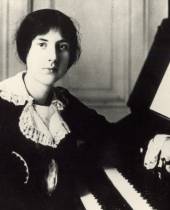
О Лили Буланже см. http://ru.wikipedia.org/wiki/%D0%91%D1%83%D0%BB%D0%B0%D0%BD%D0%B6%D0%B5,_%D0%9B%D0%B8%D0%BB%D0%B8
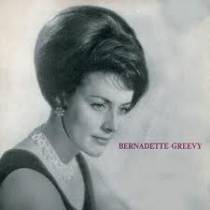
О Бернадетт Гриви см. http://en.wikipedia.org/wiki/Bernadette_Greevy
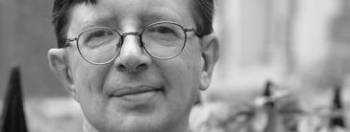
Об Иэне Партридже см. http://en.wikipedia.org/wiki/Ian_Partridge
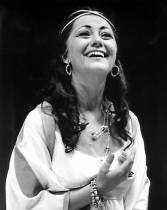
Janet Price was born in the village of Abersychan in Wales. She didn't always envision a career as a soprano. 'When I started preparing for university my intention was to be a doctor.' From an early age she had always thought 'How wonderful it would be to look out of a window, see somebody walk down the road, and think, ‘he does that partly because of me.''
But by the time of her Form 6 studies, music had triumphed over medicine. Both parents were regionally known amateur singers, and she herself began performing at the age of 4, receiving instruction in both voice and piano (fans may be surprised to learn that when her family gathered around the piano to sing, Price's role was as the accompanist). She regularly won first prize in local competitions. Impressed by her talent, her mother's butcher wrote a letter to a television program called 'All Your Own' recommending that they showcase her. Soon she was appearing on the program as both a singer and a pianist. Her versatility as well as virtuosity made her a favorite. She recalls that on one episode the pianist was late to the first rehearsal. 'They wanted to know what I was singing, and I said, ‘Well, I can show you.' I sang accompanying myself and they begged my mother there and then to take me out of school, and let me go into a television program called ‘Whirligig'.' Had she taken them up on the offer, her career would have been a very different one, 'a sort of Julie-Andrews-type thing.'
Education had a high priority in Wales in the difficult time after the start of World War II, and her mother refused the bait despite two hours of pleading from the producers of the show. When she did go to university, it was to study composition. Though she sang solos in choral society concerts, her main practical study was in piano. She developed a high level of proficiency, and played concertos with the university orchestra as well as participating in chamber ensembles.
In 1962, a history professor's intervention helped to transform Price from a talented pianist into a virtuoso coloratura. The professor penned a letter to composer Michael Head about Price saying, 'I have a friend who sings and plays the piano, and some of us think that her personality is being lost by sitting at a piano. We feel that she should be a singer, what can you recommend?'
'Well, what on earth could the poor chap say?' laughs Price. Head wrote back recommending that she sing for Olive Groves at the Royal Academy of Music: if she felt Price should sing, he would trust that judgment. When Price auditioned, Groves felt instantly that she was a born singer. After having spent five hours every day at the piano, Price closed the lid and did not practice it again. After post-graduate study with Groves, in 1964 she won the Young Welsh Singers' Award, an honor which helped to launch her singing career.
Groves is partly responsible for the solid singing technique that allowed Price to re-create some of the most taxing roles of the bel canto repertoire. Price also feels she owes a debt of gratitude to Joan Sutherland. 'When I started singing, her Art of the Prima Donna album came out around the same time, and I listened to it and I thought, ‘this is terrific from a technical point of view.' I could shut my eyes and almost imagine how she was throwing the voice around.'
After one Opera Rara performance, Price confided in Richard Bonynge how much she owed to Sutherland. Bonygne pooh-poohed her. 'Rubbish,' he retorted, 'People are either born to sing this kind of music or they're not, you're one of those born to sing it.' Price was flattered, but with characteristic pluckiness replied, 'I don't care what you say, I owe something to your wife.' Price to this day considers Sutherland one of her ‘teachers in absentia,' in deportment as well as in matters vocal. 'I always respected her so much because she had one foot on the earth. There was no diva behavior there, which I've never been able to stomach at all. I like people to be thoughtful, and she is very normal, despite the greatness of her career.'
The sophistication Price brought to bel canto roles in part can be traced to her training and expertise as an interpreter of art song. Fans of her bel canto recordings may be surprised to learn that during the 1960's she studied and performed in France with such legendary figures as Nadia Boulanger and Aaron Copland. She and her husband Adrian Beaumont had daily lessons with Boulanger, which could last up to five hours. 'It must have been like in the days of Liszt I should think, when time was completely lost. But she was both a revolution and a revelation in my life. I was drawn to French music but I really didn't know a lot about it until I went to her.' Price went on to do concerts with Boulanger, recording the Faurè Requiem and Lili Boulanger's Pie Jesu.
Price herself feels one of her unique contributions to the music she performed was to bring greater musicianship to the works she interpreted than a singer who hadn't been trained as a musician might. 'I feel very strongly that all the roulades, all that kind of thing, has to have some emotional basis,' she says. Display for the sake of showing off is never the way to go, in Price's opinion. 'How you sing your portamento depends on what emotion your trying to convey at that moment, so I did always try, and felt very strongly about that. I hope that people can see that in my recordings.' 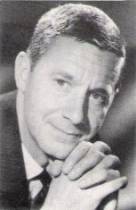
John Carol Case was born in Salisbury, England.
The English baritone, John Carol Case, gained a Choral Scholarship at King's College, Cambridge where he gained MA and BMus degrees.
For a time John Carol Case was Director of Music at King's College School in Wimbledon, and also served as National Music Advisor to the Townswomen's Guilds. During the mid 1950's he began to be recognised as one of England's leading baritones and he became associated with all the great choral societies and festivals. He became a regular broadcaster on BBC radio and television and made concert appearances in Europe and Canada.
John Carol Case retired from the concert platform in 1976 to concentrate on his new career as an internationally known teacher of singing, the same year, the Royal Academy made him honorary RAM. In 1993 he was honoured with the OBE for services to music. BMP have published a series of carols he wrote for All Saints Church, Thornton-le-Dale.
Lili Boulanger.
Psalm 24 for tenor, choir, organ, and orchestra (1916).
Pie Jesu for soprano, string quartet, harpe, and
organ (1918).
Psalm
130 for
alto, tenor, choir, and orchestra (1910–1917). Gabriel Fauré. Requiem, for 2 solo voices, chorus, organ & orchestra, Op. 48
- Introit et Kyrie
- Offertoire
- Sanctus
- Pie Jesu
- Agnus Dei et Lux aeterna
- Libera me
- In Paradisum
Janet Price, soprano Bernadette Greevy, alto
Ian Partridge, tenor John Carol Case, baritone
BBC Chorus BBC Symphony Orchestra Nadia Boulanger, Conductor
Live Recording Date Oct 30, 1968 Recording Location - Fairfield Halls, Croydon, London, England Формат: Ape |

